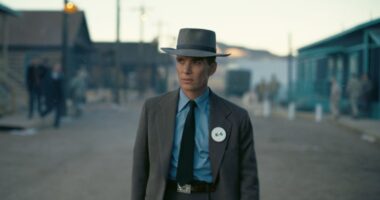
He added: “There’s an old adage that every Jew knows where their passport is.”
Last week, the Jewish Democratic Council of America released a digital ad juxtaposing images including rallies in Nazi Germany, the Jan. 6 invasion of the Capitol, antisemitic graffiti and the recent “Kanye is right” banner above the freeway in Los Angeles.
On Sunday, Robert Kraft, the owner of the New England Patriots, sponsored a television commercial during the Patriots-Jets game, asking viewers to speak up against antisemitism.
Rabbis across the country are grappling with how to address the issue with worshipers. Congregation Beth Elohim in Brooklyn this week sent an email to its members announcing a sermon this weekend on antisemitism, noting the upcoming election as well as news coverage of rising antisemitism, and saying, “It is difficult not to feel anxious about the future.”
Younger Jews sense a shift in society. “For people of my parents’ generation, there was a certain sense of safety with regard to antisemitism in America,” said Meshulam Ungar, a 21-year old junior at Brandeis and a vice president of the Brandeis Orthodox Organization. “Things have gotten more dangerous for us.”
The consequences of antisemitism are on vivid display in the culture right now. A new Ken Burns documentary, “The U.S. and the Holocaust,” was released in September by PBS and details how American antisemitism affected the nation’s willingness to take in refugees fleeing Nazi persecution. On Broadway, the best-selling new play of the fall season is Tom Stoppard’s “Leopoldstadt,” about three generations of a Jewish family in Austria largely destroyed by World War II.
Brandon Uranowitz, one of the play’s leading actors, said performing a story about the deadly effects of antisemitism in this climate has become both more painful and more important. “All of a sudden, objects in the mirror are closer than they appear,” he said.
Off Broadway, a group of artists is staging an unexpectedly timely revival of “Parade,” a musical about the antisemitism-fueled 1915 lynching of a Jewish man in Georgia. Ben Platt, that production’s star, made a similar observation, saying, “It’s felt urgent in a way that is shocking to all of us.”
Source: | This article originally belongs to Nytimes.com









